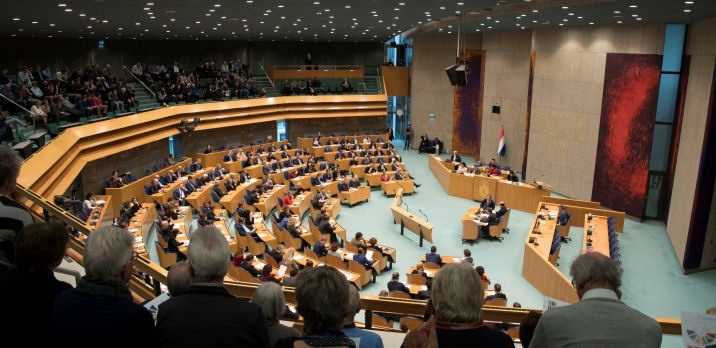Round table debate about Kingdom Charter: “Not correct to state that we are still a colony of the Netherlands”

PHILIPSBURG — Next week Tuesday, April 19, the parliamentary committee for Constitutional Affairs and Decolonization organizes a round table panel discussion with four experts about the Kingdom Charter, its relation to the United Nations in terms of decolonization and the democratic deficit in the kingdom. The invited experts are former Ombudsman Dr. Nilda Arduin, attorney Reynold Groeneveldt, prof. dr Gerhard Hoogers and political analyst Julio Romney. The position papers of the first three experts are available on the parliament’s website.
Arduin kicks off her paper with the statement that “St. Maarten is far from being de facto decolonized.” She advocates the establishment of a team to mediate a better relationship between the Netherlands and St. Maarten. “Initiating deliberations in an atmosphere of contention is a recipe for failure.”
With the enactment of the Kingdom Charter in 1954, the United Nations deemed the process of decolonization completed. In 2010 the dismantling of the Netherlands Antilles became a fact and this constituted, Arduin says, “one of the most radical changes of the Kingdom Charter since its enactment in 1954.”
The former Ombudsman points out that the democratic deficit in the Kingdom needs to be addressed. But decolonization? “I consider it doubtful if St. Maarten can de facto be fully decolonized, considering the post-colonial socio-economic instability experienced on all Dutch Caribbean islands as a result of past colonization.”
Taking a closer look at the Kingdom Charter is another matter: “An approach to amend the Charter is an integral part of the decolonization process of St. Maarten as a new autonomous partner in the kingdom.”
Arduin points out that 70 percent of St. Maarten’s population constitutes “newcomers, economic citizens and other immigrants with no or little affiliation with the colonial past.”
Attorney Reynold Groeneveldt states in his paper that the kingdom structure is that of a federal state. “It should function as such and not, as it does now, as a unitary state wherein all government power and authority is attributed to the highest government body while certain powers are delegated downward to lower levels of government.”
Groeneveldt refers to the UN resolutions 1514 and 1541 on decolonization: “St. Maarten still possesses the right to self-determination and it can still opt to become an independent state.”
He furthermore refers to the government regulation ofq1865, a document considered to be the first constitution. “The decolonization process started in 1865 and it continued up to the enactment of the Kingdom Charter. We must conclude that since 1954 and thereafter we cannot still be considered to be a colony.”
“It is legally not correct to state that we are still a colony of the Netherlands and that the decolonization process has not been completed. From a historical and constitutional perspective there are no valid arguments to substantiate such a view.”
Groeneveldt adds that St. Maarten has attained a full measure of self-internal government, but he admits that there are “some restrictions based on the Charter.”
There is however plenty of room for improvement. The democratic deficit needs to be corrected and the composition of the Kingdom Council of Ministers is undemocratic, Groeneveldt states.
“The Netherlands has an undue advantage in comparison with the other partners in the Kingdom. It is the biggest, best economically developed and most experienced of the four countries with the largest population and the largest GDP. But that cannot be legitimate reasons for the Netherlands to command the democratic control of the entire Kingdom.”
The attorney mentions the lack of a democratically elected Kingdom parliament as another shortcoming in the Kingdom structure.
Goeneveldt recommends defining the Kingdom Charter as the constitution of a federal state; to solve the democratic deficit; to establish a democratically elected Kingdom government and parliament; to remove articles related to higher supervision from the Charter and establishing a Kingdom Constitutional Court.
Prof. Hoogers labels the Kingdom Charter as a legal document of a peculiar nature. “It introduced a new legal order in an existing Kingdom. Its fundamental makeup is quasi-federal but the Charter does not use the term federal and a lot in the chosen structure looks strange from a normal federal perspective.” As an example he mentions the lack of a structural representation of the four countries.
At the same time, Hoogers does not seem to be unhappy with the Kingdom Charter: “It regulates a very far-reaching autonomy. An unwritten rule of Kingdom constitutional law is that the three Caribbean countries have the right to secede from the Kingdom and thus gain a full measure of independence under international law.”
Things have also changed, and not to the advantage of the islands. “In the political and legal reality of the Kingdom in 2022, the powers of the Netherlands to interfere in the domestic affairs of Aruba, Curacao and St. Maarten are far greater than they were thirty years ago. But as a guarantor of constitutional autonomy, the Charter has almost no equal in the world.”
Of course, St. Maarten could one day decide that it no longer wants to be bound by a constitutional link to the Netherlands. Hoogers: “Whether this would improve socio-economic conditions and therefore true autonomy (as opposed to just a formal one) is debatable.”

























